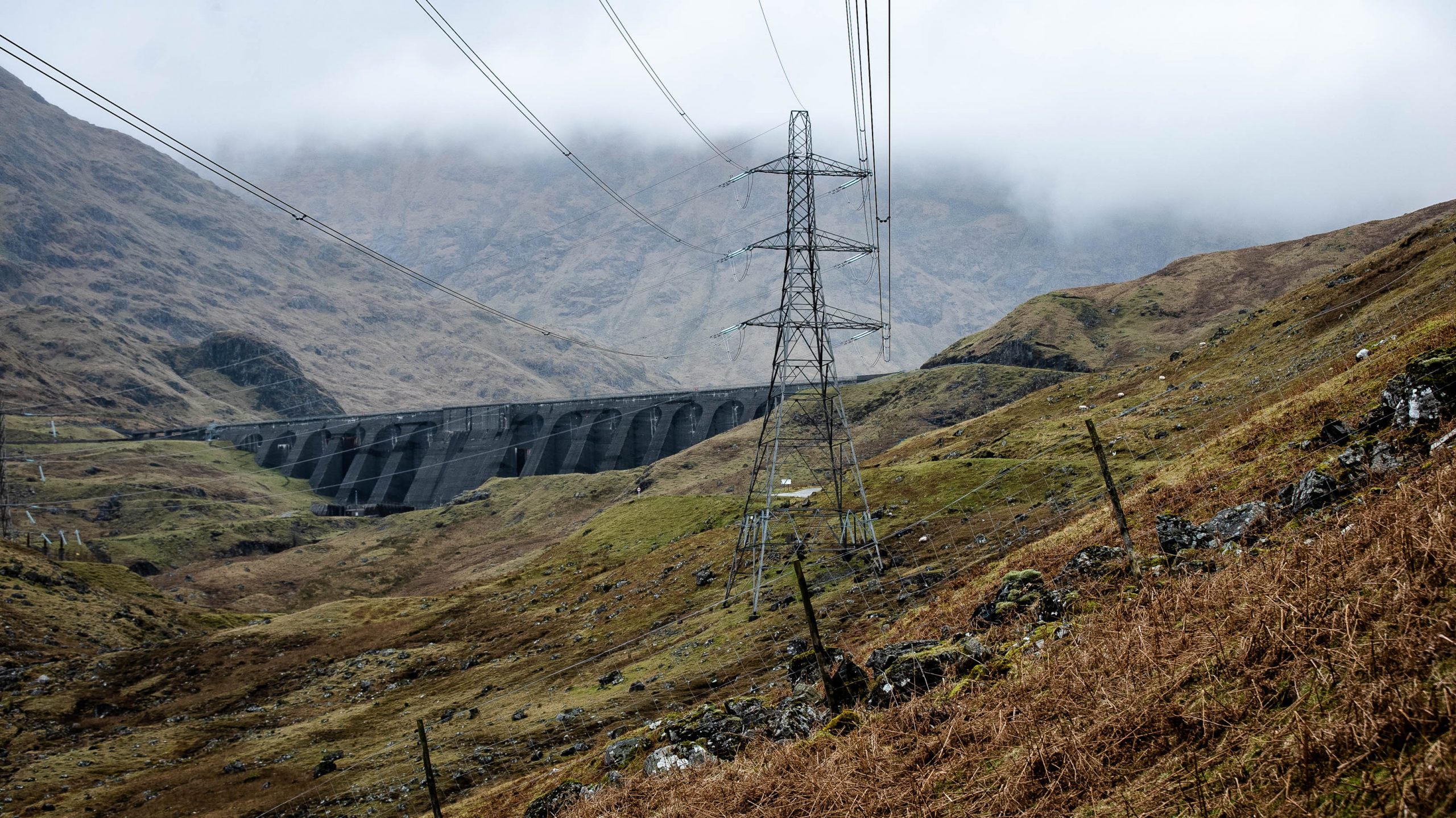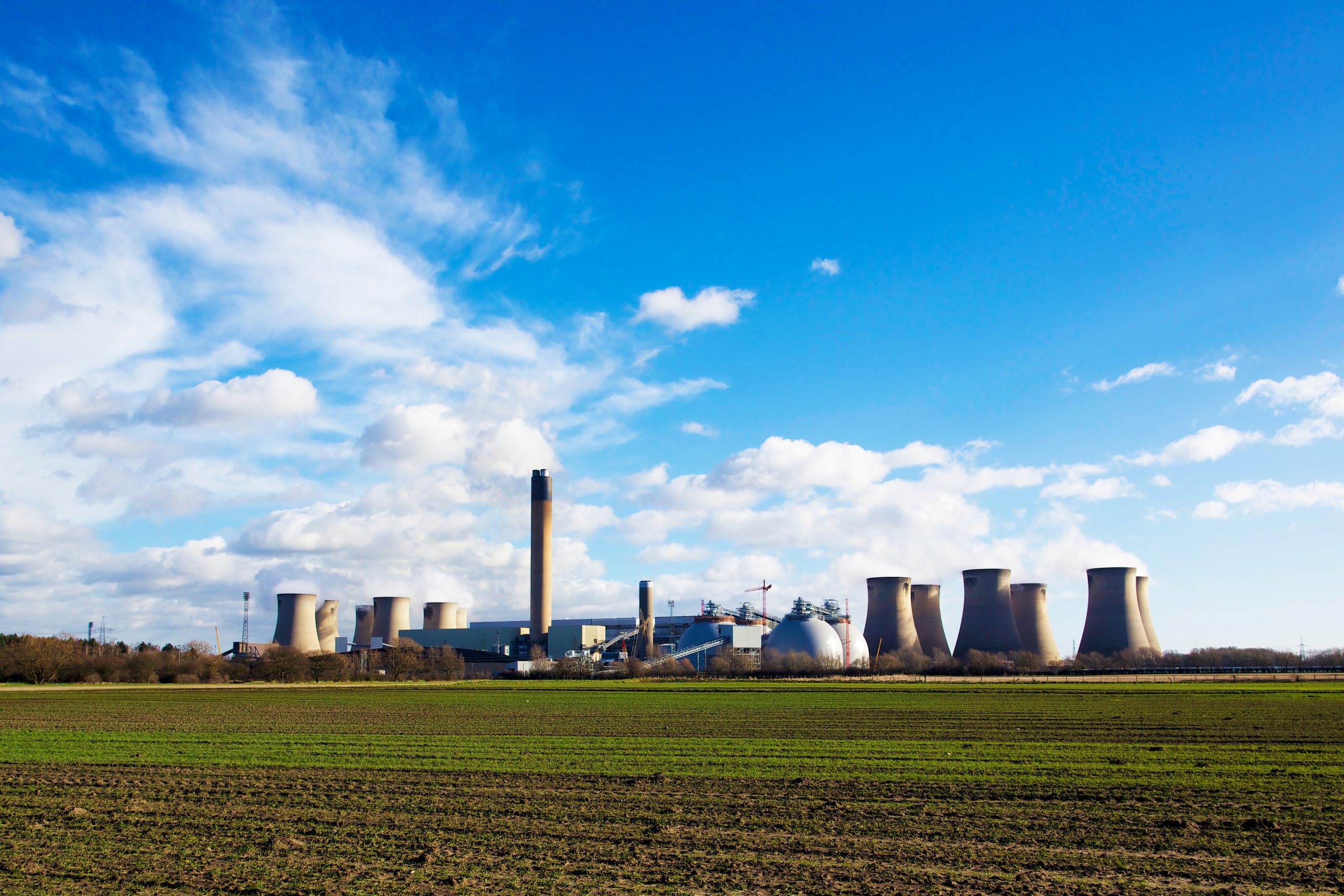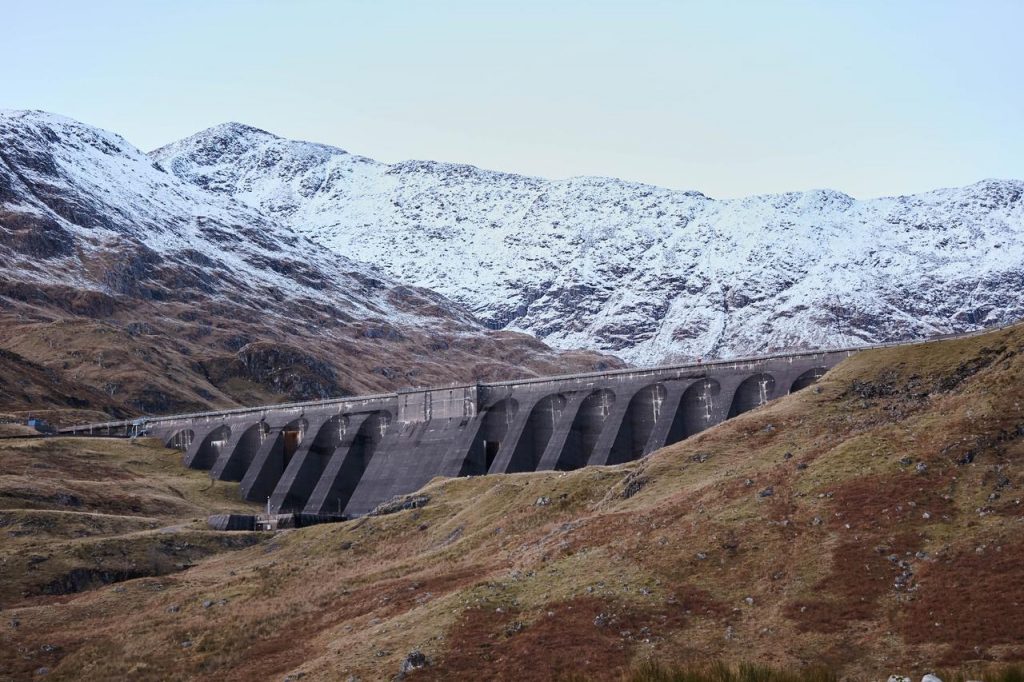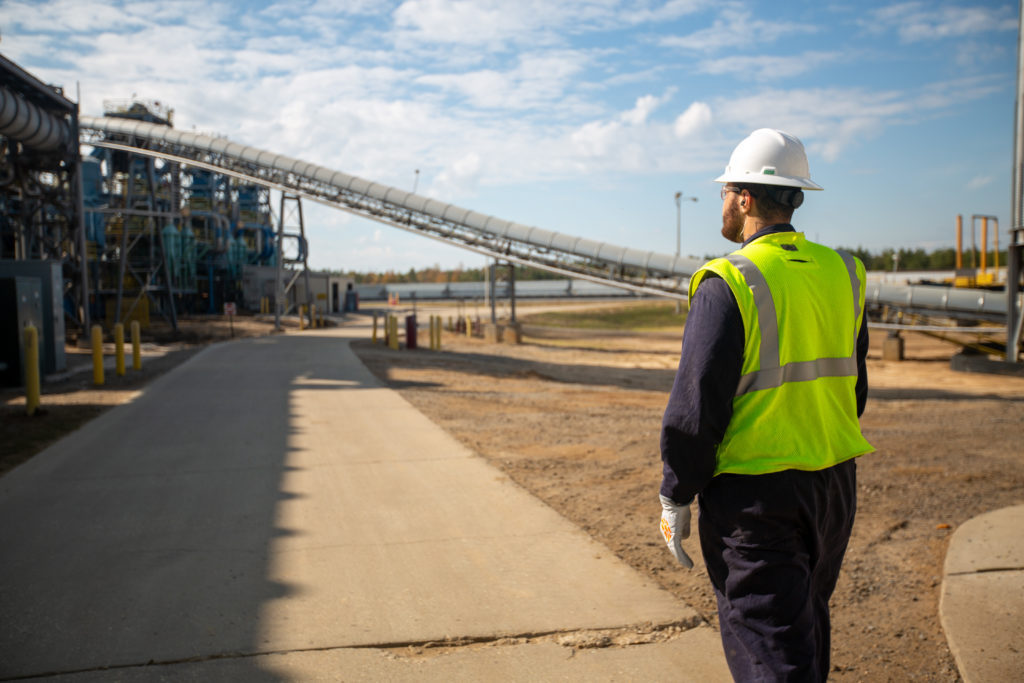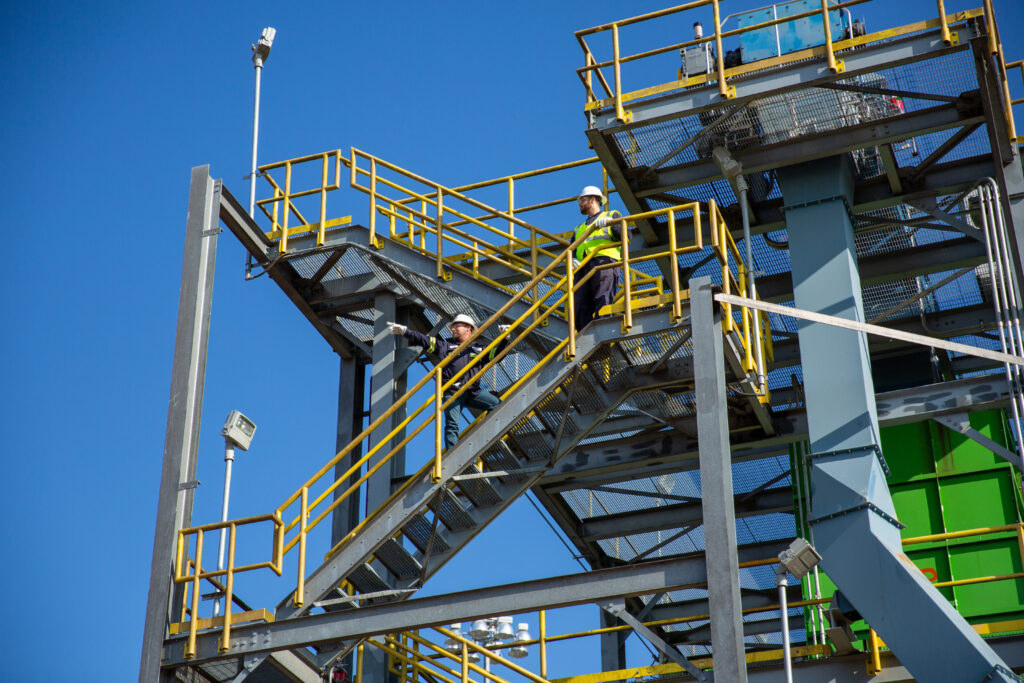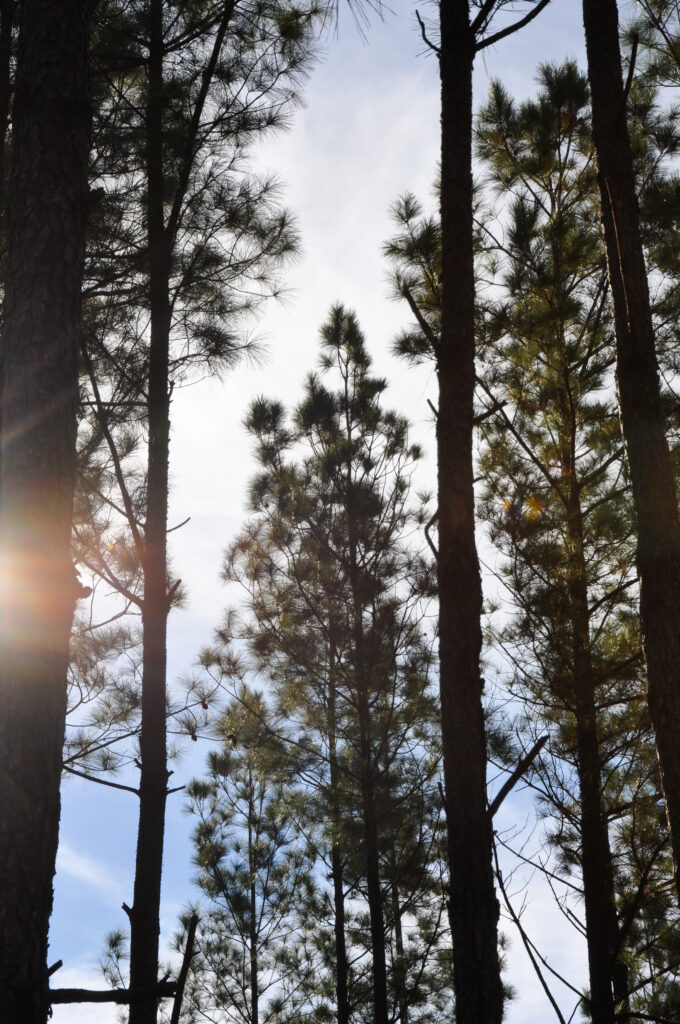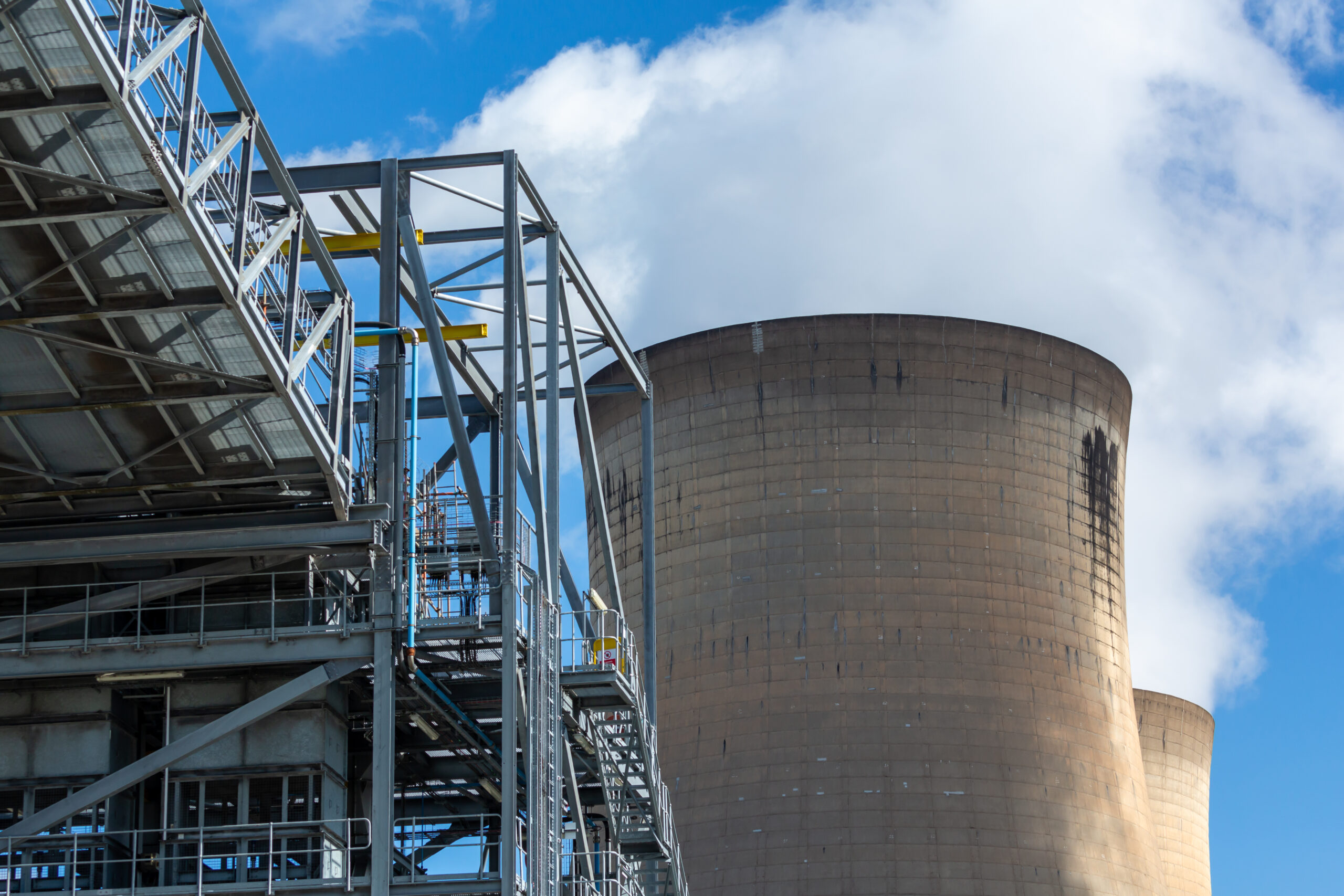
RNS Number : 8820E
Drax Group PLC
29 February 2023
| Twelve months ended 31 December | 2023 | 2022 |
|---|---|---|
| Key financial performance measures | ||
| Adjusted EBITDA (excl. EGL)(1)(2)(3) (£ million) | 1,214 | 731 |
| Electricity Generator Levy (EGL)(3) (£ million) | (205) | - |
| Adjusted EBITDA (incl. EGL)(1)(2)(3) (£ million) | 1,009 | 731 |
| Net debt(4) (£ million) | 1,084 | 1,206 |
| Net debt to Adjusted EBITDA (incl. EGL) | 1.1x | 1.6x |
| Adjusted basic EPS (1) (pence) | 119.6 | 85.1 |
| Dividend per share (pence) | 23.1 | 21.0 |
| Total financial performance measures | ||
| Operating profit (£ million) | 908 | 146 |
| Profit before tax (£ million) | 796 | 78 |
Will Gardiner, CEO of Drax Group, said:
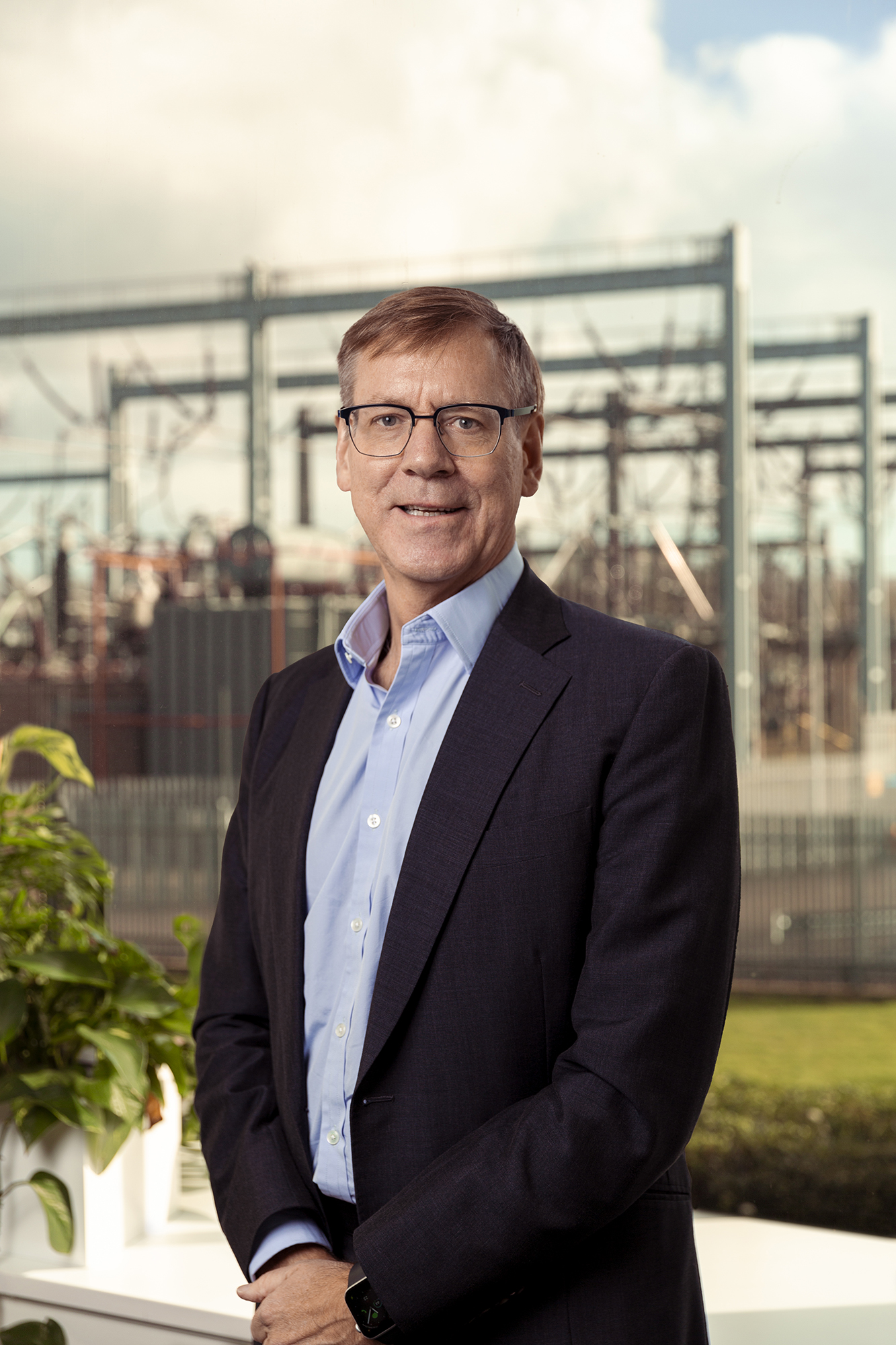
Will Gardiner, Drax Group CEO
“Drax performed strongly in 2023 and we remained the single largest provider of renewable power by output in the UK. We have created a business which plays an essential role in supporting energy security, providing dispatchable, renewable power for millions of homes and businesses, particularly during periods of peak demand when there is low wind and solar power.
“Policy support for our UK BECCS project continues to progress and we remain in formal discussions with the UK Government to ensure Drax Power Station can play a long-term role in UK energy security, creating thousands of jobs during construction and helping the country reach Net Zero.
“We have made further progress in our ambition to be a world leader in carbon removals and have visibility of high-quality, long-term earnings to 2042 and a strong balance sheet which supports returns to shareholders and investment in growth, both in the UK and internationally.”
Financial highlights – strong financial performance and returns to shareholders
- Adj. EBITDA growth driven by system support services, renewable generation, and energy solutions (Customers)
- Strong liquidity and balance sheet – £639 million of cash and committed facilities at 31 December 2023
- New £258 million term-loan facilities with 2027-2029 maturities (February 2024)
- Proposed final dividend of 13.9 pence per share (2022: 12.6 pence per share) – 10% increase
- £150 million share buyback programme concluded(5)
Current business and targets provide strong long-term foundation for balance sheet, dividend and investment
- Flexible generation and energy solutions portfolio – targeting post 2027 recurring Adj. EBITDA of >£250 million
- Pumped storage, hydro, Open Cycle Gas Turbines (OCGTs) and energy solutions
- Operating in power, renewable, system support and capacity markets
- c.£580 million of capacity payments to 2042 – existing and new capacity, including Cruachan refurbishment
- Pellet production – targeting post 2027 recurring Adj. EBITDA >£250 million from own-use and third-party sales
- Biomass generation – 2.6GW of flexible renewable generation
- Strong forward hedges support firm cash flows (2024-2026) with additional value from uncontracted power
- Expect long-term value from bridging mechanism and BECCS
Financial outlook
- Full year 2024 expectations for Adj. EBITDA in line with analysts’ consensus estimates(6)
- Expect to repay Q4 2025 debt maturities through cash generation and refinancing activities in 2024
- Outlook for 2025 Adj. EBITDA underpinned by a strong hedge book – >90% hedge of power on RO units
Attractive opportunities to invest for long-term growth linked to energy transition and security of supply
- Options for c.£4 billion of growth investment by 2030, with additional investment through 2030s
- UK BECCS – targeting first unit (4Mt pa) by 2030 in line with UK ambition, with second unit (4Mt pa) to follow – good progress over last 12 months
- UK Government Biomass Strategy (August 2023) highlights important role for BECCS
- Planning consent granted for two units (January 2024)
- Consultation on BECCS bridging mechanism (January – February 2024)
- MoU with Harbour Energy and bp to assess options for transportation and storage of CO2 (February 2024)
- Ongoing formal discussions with UK Government regarding bridging mechanism and BECCS
- Global BECCS – targeting first project (3Mt pa) by 2030 – site selected in US South, moving to FEED in 2024
- Targeting 600MW expansion of Cruachan Power Station (pumped storage) by 2030, planning consent granted
- Targeting 8Mt pa of pellet production capacity by 2030, subject to clarity on UK BECCS
- Ambition for the development of over 20Mt pa of carbon removals through 2030s
Capital allocation policy unchanged – continue to assess capital requirements in line with the current policy
Sustainability
- Compliance with TCFD reporting requirements
- Science Based Targets initiative (SBTi) targets approved
- Forum for the Future BECCS Done Well report and publication of initial Drax response
National Audit Office (NAO) and Ofgem
- NAO review of UK Government’s biomass strategy published (January 2024)
- Outlines opportunities to develop standards consistent with existing statements from UK Government
- Highlights UK Government’s commitment to biomass and its long-term role in delivering UK targets
- Ofgem – annual assessment of compliance with Renewables Obligation (RO) scheme (May 2023) – “Good” rating
- Ofgem – investigation of annual biomass profiling reporting under RO scheme (ongoing)
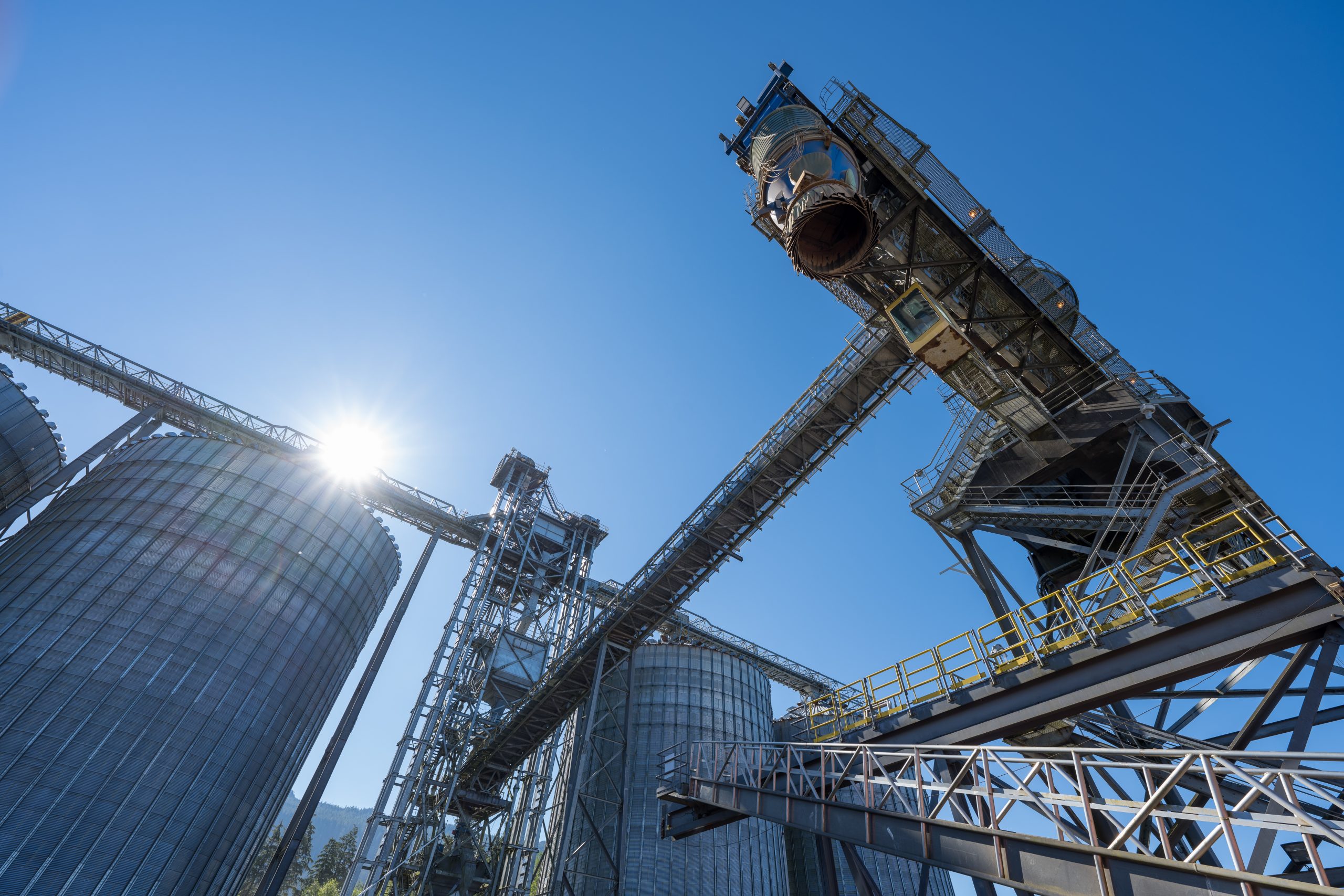
Operational and financial review
| £ million | 2023 | 2022 |
|---|---|---|
| Adj. EBITDA breakdown (incl. EGL) | 1,009 | 731 |
| Pellet production | 89 | 134 |
| Pumped storage and hydro | 230 | 171 |
| Biomass generation | 703 | 525 |
| Energy solutions (Customers) | 72 | 26 |
| Corporate, innovation, Global BECCS and other(7)(8) | (85) | (125) |
Pellet Production – production and sales supporting UK generation and sales to third parties
- Robust performance in a challenging environment
- Progressing development of new Longview pellet plant, and Aliceville expansion complete
- Investment of c.$300 million adding c.0.6Mt of new capacity
- Pipeline of new third-party sales opportunities
- 5Mt contract to Japan over five years, commenced in 2023
- Letter of Intent for sale of up to 1Mt of biomass to European utility, for projects incl. Sustainable Aviation Fuel
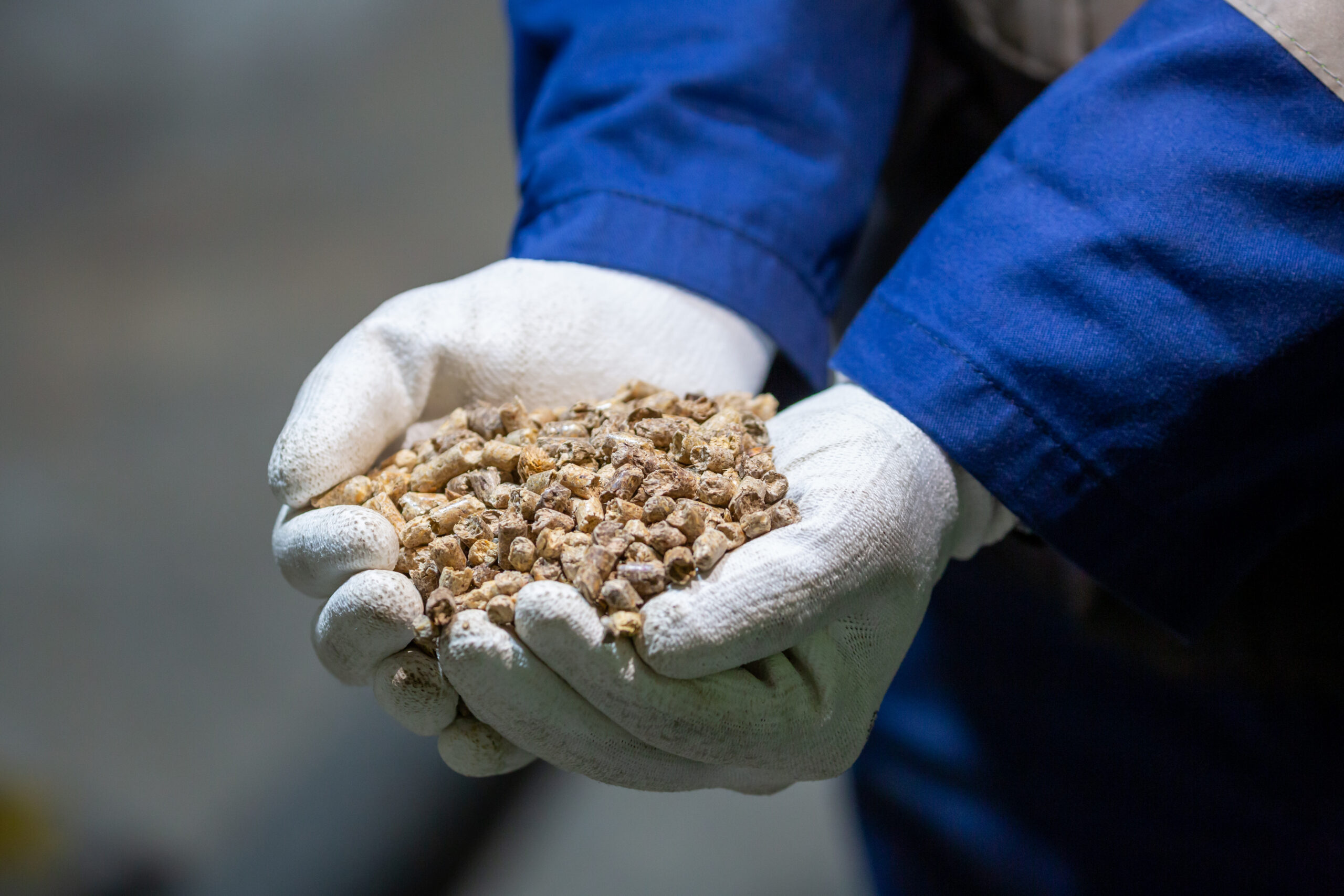
Generation – energy security with dispatchable renewable generation and system support services
- Pumped storage and hydro – strong system support and generation performance
- Includes forward sale of peak power (Q1 2023), system support services, renewables and capacity payments
- Biomass generation – strong system support and renewable generation performance
- Period-on-period reduction in output reflects two major planned outages
- Higher achieved power price and value from system support, but higher biomass costs
- As at 26 February >£2.8 billion of forward power sales between 2024 and 2026 on RO biomass, pumped storage and hydro generation assets – 22.3TWh at an average price of £127.3/MWh(9/10)
- RO generation – fully hedged in 2024 and >90% hedged in 2025
- A further 2.6TWh of CfD generation contracted for 2024
Contracted power sales as at 26 February 2024 | 2024 | 2025 | 2026 |
|---|---|---|---|
| Net RO, hydro and gas (TWh)(9) | 10.8 | 9.3 | 2.2 |
| Average achieved £ per MWh(10) | 149.0 | 111.1 | 89.6 |
| CfD (TWh) | 2.6 |
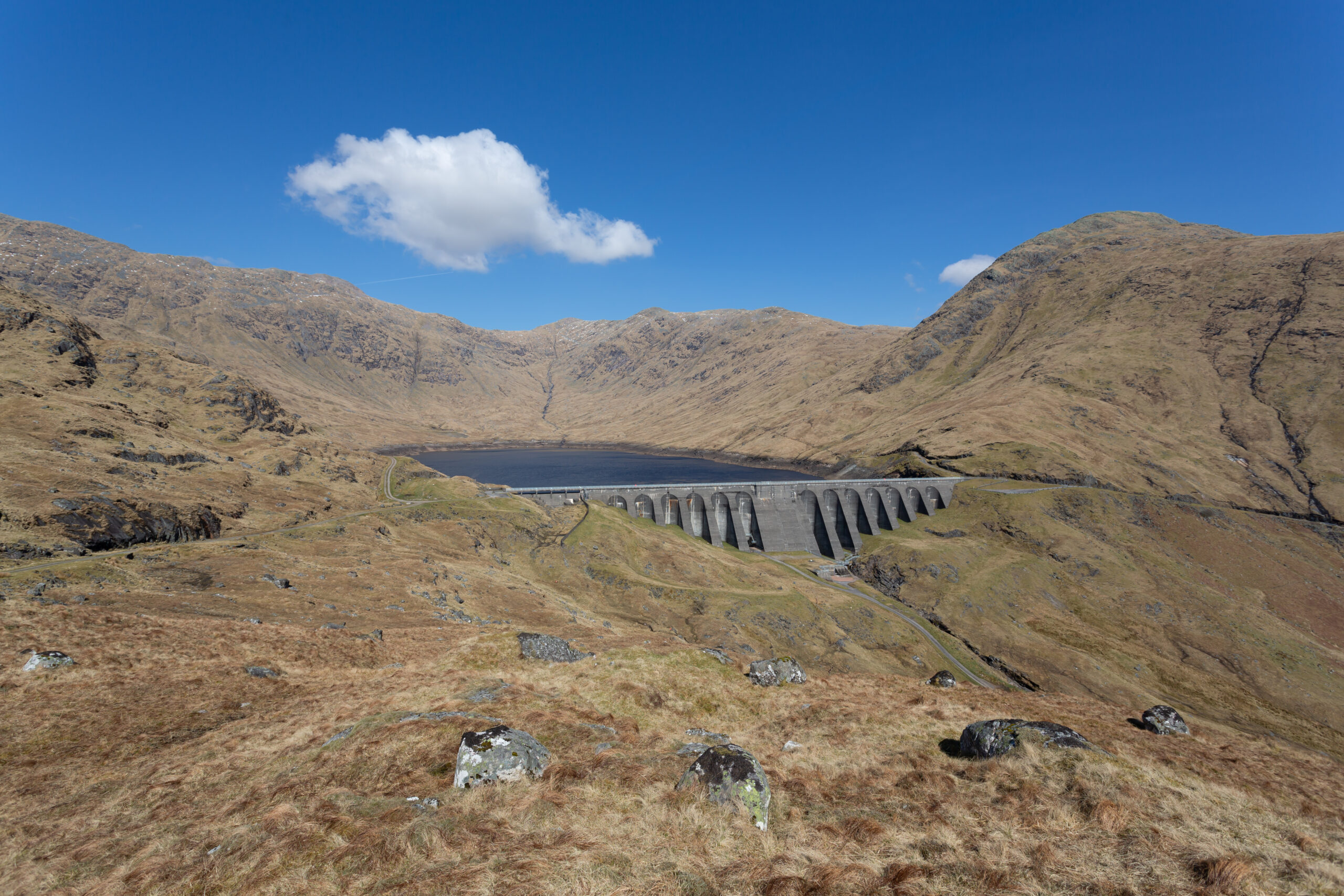
Energy Supply (Customers) – renewable power and energy services
- Strong Industrial and Commercial (I&C) performance with 7% increase in power sales – 15.8TWh (2022: 14.8TWh), stable margins on contracted sales and lower balancing costs
- Growing value from 100% renewable power products
- Development of energy solutions business including system support services via demand response, and electric vehicle services following acquisition of BMM (August 2023)
- Impairment of Opus Energy of £69 million, following transfer of renewables activities to Drax Energy Solutions (along with £145 million of Goodwill) and the previously announced ending of gas sales
Other financial information
Capital investment
- Capital investment of £519 million (2022: £255 million)
- £187 million maintenance and other, including two major planned outages on biomass units
- £332 million growth, including £189 million OCGTs and £76 million pellet plant developments
- 2024 expected capital investment of £410-450 million
- OCGTs – c.900MW – three new-build sites, commissioning in H2 2024
- Continuing to evaluate options for these projects
Cash and balance sheet
- Cash generated from operations £1,111 million (after £155 million inflow of collateral) (2022: £320 million, after £407 million outflow of collateral)
- Net debt at 31 December 2023 of £1,084 million (31 December 2022: £1,206 million), including cash and cash equivalents of £380 million (31 December 2022: £238 million)
- Good progress on financing activities
- ESG term loan, extended maturity to 2026 and reduced size to C$200 million (November 2023)
- £144 million of infrastructure facilities repaid (January 2024)
- Extension of £300 million revolving credit facility to 2026 (January 2024)
- New £258 million term-loan facilities with 2027-2029 maturities (February 2024)
Forward Looking Statements
This announcement may contain certain statements, expectations, statistics, projections and other information that are, or may be, forward-looking. The accuracy and completeness of all such statements, including, without limitation, statements regarding the future financial position, strategy, projected costs, plans, beliefs, and objectives for the management of future operations of Drax Group plc (“Drax”) and its subsidiaries (the “Group”), are not warranted or guaranteed. By their nature, forward-looking statements involve risk and uncertainty because they relate to events and depend on circumstances that may occur in the future. Although Drax believes that the statements, expectations, statistics and projections and other information reflected in such statements are reasonable, they reflect the Company’s current view and no assurance can be given that they will prove to be correct. Such events and statements involve risks and uncertainties. Actual results and outcomes may differ materially from those expressed or implied by those forward-looking statements. There are a number of factors, many of which are beyond the control of the Group, which could cause actual results and developments to differ materially from those expressed or implied by such forward-looking statements. These include, but are not limited to, factors such as: future revenues being lower than expected; increasing competitive pressures in the industry; uncertainty as to future investment and support achieved in enabling the realisation of strategic aims and objectives; and/or general economic conditions or conditions affecting the relevant industry, both domestically and internationally, being less favourable than expected, including the impact of prevailing economic and political uncertainty, the impact of strikes, the impact of adverse weather conditions or events such as wildfires. We do not intend to publicly update or revise these projections or other forward-looking statements to reflect events or circumstances after the date hereof, and we do not assume any responsibility for doing so.
Webcast Arrangements
Management will host a webcast presentation for analysts and investors at 9:00am (GMT), Thursday 29 February 2024.
The presentation can be accessed remotely via a live webcast link, as detailed below. After the meeting, the webcast recording will be made available and access details of this recording are also set out below.
A copy of the presentation will be made available from 7:00am (GMT) on Thursday 29 February 2024 for download at: https://www.drax.com/investors/announcements-events-reports/presentations/
| Event Title: | Drax Group plc: Full Year Results |
| Event Date: | Thursday 29 February 2024 |
| Event Time: | 9:00am (GMT) |
| Webcast Live Event Link: | https://secure.emincote.com/client/drax/drax028 |
| Conference call and pre-register Link: | https://secure.emincote.com/client/drax/drax028/vip_connect |
| Start Date: | Thursday 29 February 2024 |
| Delete Date: | Saturday 1 March 2025 |
| Archive Link: | https://secure.emincote.com/client/drax/drax028 |
For further information, please contact: [email protected]
| Website: | www.drax.com |
View investor presentation here
Notes:
(1) Financial performance measures prefixed with “Adjusted” are stated after adjusting for exceptional items (including impairment of non-current assets, proceeds from legal claims, change in fair value of financial instruments and impact of tax rate changes). Adj. EBITDA and EPS measures exclude earnings from associates and amounts attributable to non-controlling interests.
(2) Earnings before interest, tax, depreciation, amortisation, other gains and losses and impairment of non-current assets, excluding the impact of exceptional items and certain remeasurements, earnings from associates and earnings attributable to non-controlling interests.
(3) In December 2022, the UK Government confirmed the details of a windfall tax – the Electricity Generator Levy (EGL) – on renewable and low-carbon generators, implemented in 2023 and running to 31 March 2028. The EGL applies to the three biomass units operating under the RO scheme and run-of-river hydro operations. It does not apply to the Contract for Difference (CfD) biomass or pumped storage hydro units. Following review, we have concluded that EGL will be accounted for as a levy within Gross Profit and therefore Adj. EBITDA. For 2023 we have presented Adj. EBITDA including and excluding EGL for ease of comparison.
(4) Net debt is calculated by taking the Group’s borrowings, adjusting for the impact of associated hedging instruments, and subtracting cash and cash equivalents. Net debt excludes the share of borrowings and cash and cash equivalents attributable to non-controlling interests.
Borrowings includes external financial debt, such as loan notes, term loans and amounts drawn in cash under revolving credit facilities, net of any deferred finance costs.
(5) Following completion of the share buyback programme Drax has c.384.7 million shares in issue, with a further c.40.3 million held in treasury.
(6) As of 21 February 2024, analyst consensus for 2024 Adj. EBITDA (incl. EGL) was £968 million, with a range of £882 – 1,097million. The details of this company collected consensus are displayed on the Group’s website. https://www.drax.com/investors/announcements-events-reports/presentations/
(7) In 2023 a review of the mechanism for corporate recharges was performed, leading to a greater proportion being recharged to business units, primarily Generation. The remaining £85 million in 2023 is comprised of £57 million for Global BECCS (2022: £14 million) and £28 million of other corporate and innovation costs, including the development of options for pumped storage expansion (2022: £24 million) and intercompany eliminations. 2022 is not restated in the table, but footnote 8, below includes a restated Adj. EBITDA breakdown for 2022 which includes the cost reallocation on the same basis as 2023.
(8) The table shows Adj. EBITDA breakdown with 2022 restated inclusive of the cost reallocation exercise described in footnote 7.
| £ million | 2023 | 2022 |
|---|---|---|
| Adj. EBITDA breakdown (incl. EGL) | 1,009 | 731 |
| Pellet production | 89 | 125 |
| Pumped storage and hydro | 230 | 171 |
| Biomass generation | 703 | 453 |
| Energy solutions (Customers) | 72 | 20 |
| Corporate, innovation, Global BECCS and other | (85) | (38) |
(9) Includes 3.5TWh of structured power sales in 2025 and 2026 (forward gas sales as a proxy for forward power), transacted for the purpose of accessing additional liquidity for forward sales from RO units and highly correlated to forward power prices.
(10) Presented net of cost of closing out gas positions at maturity and replacing with forward power sales.





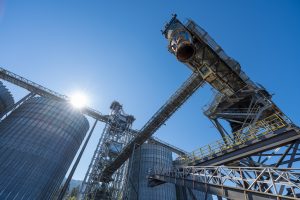
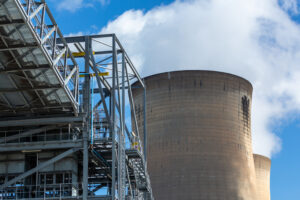

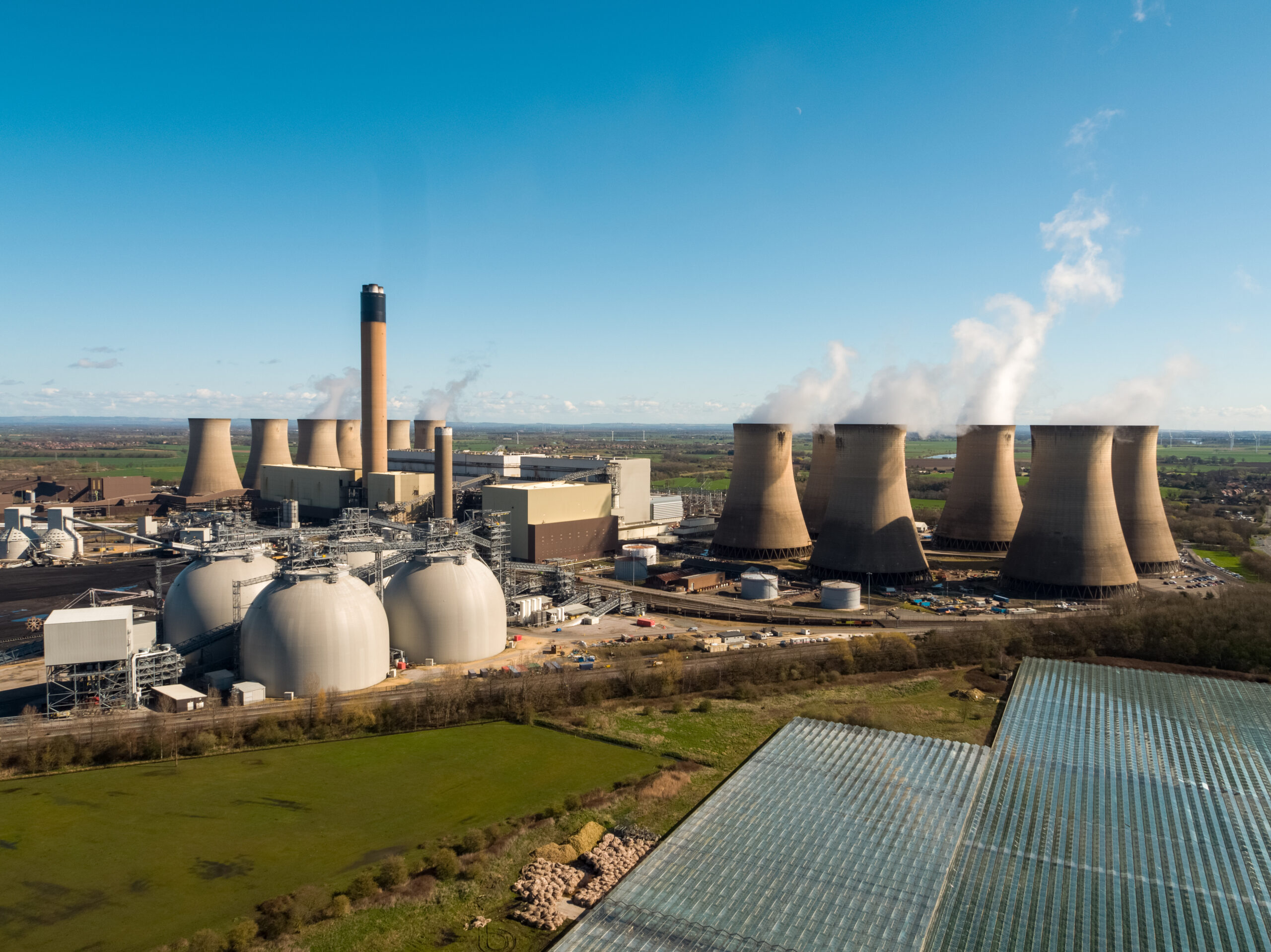
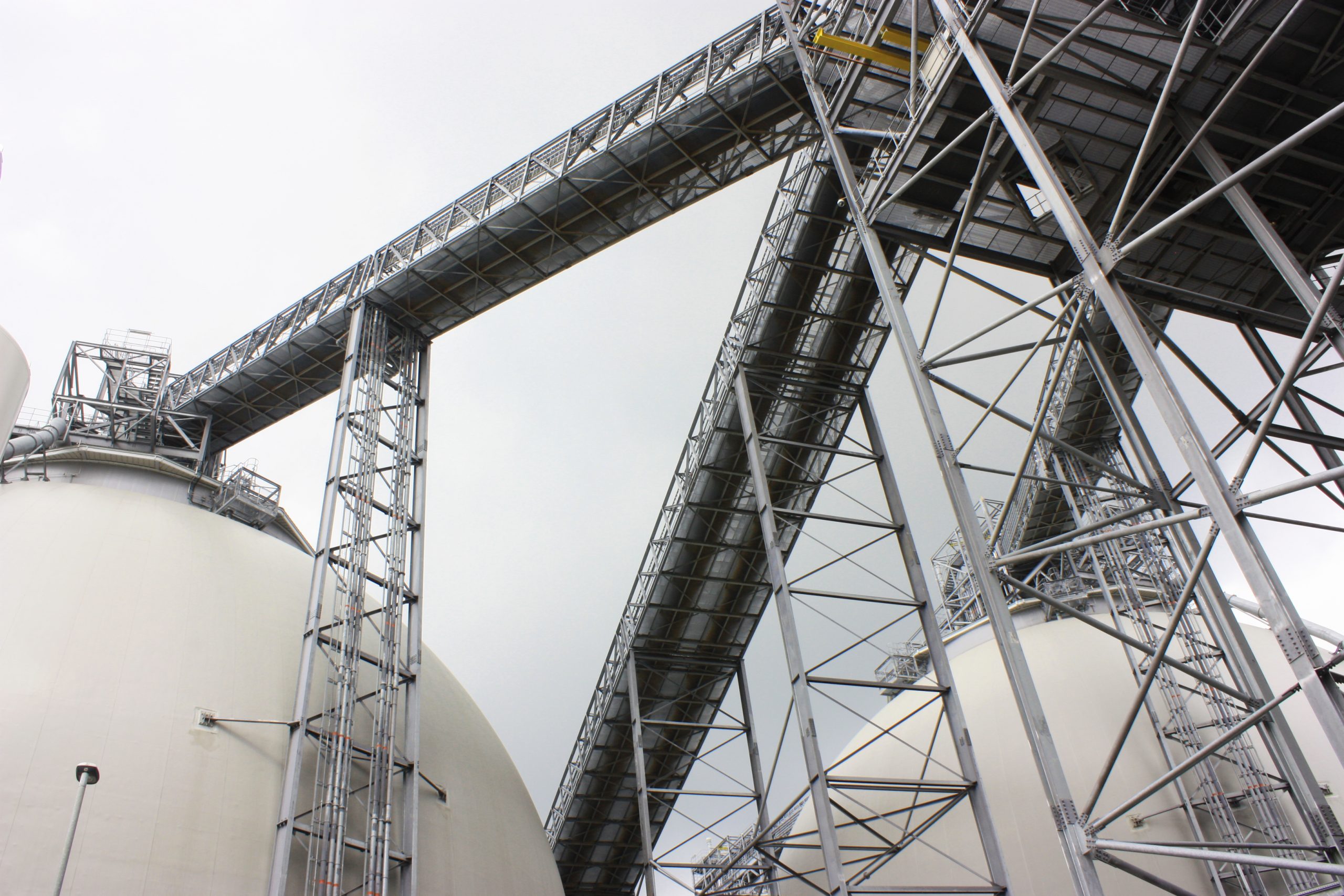

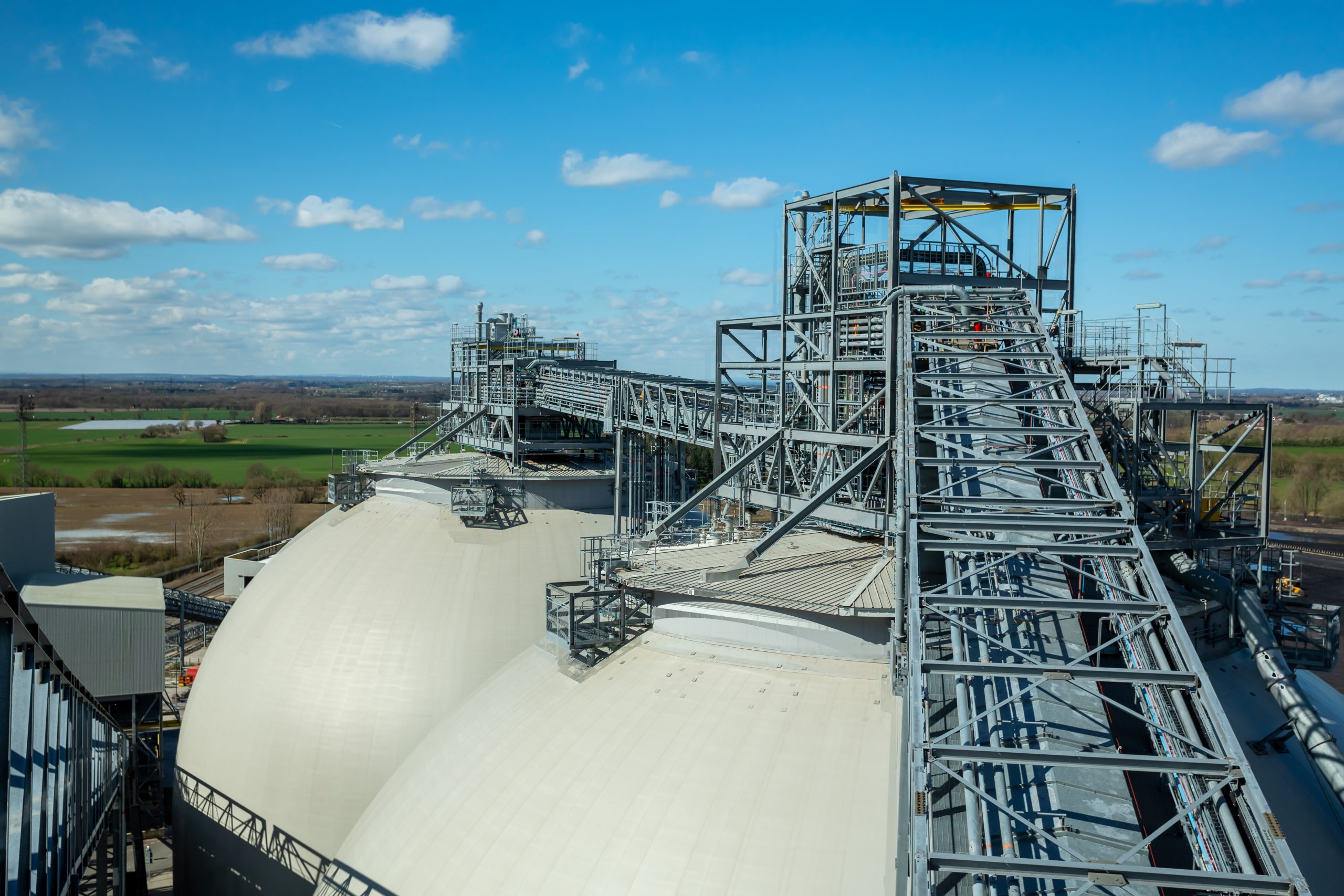

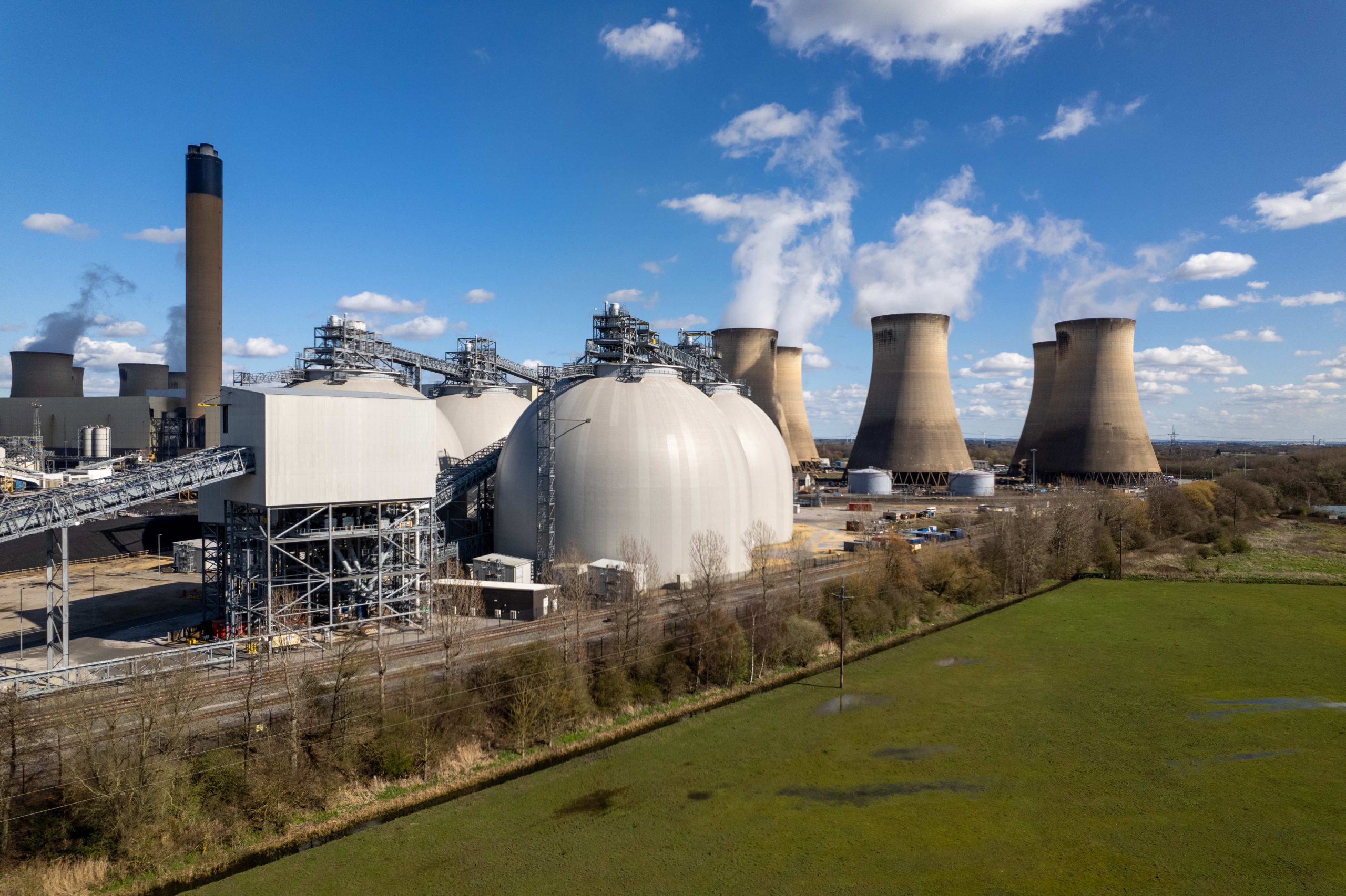
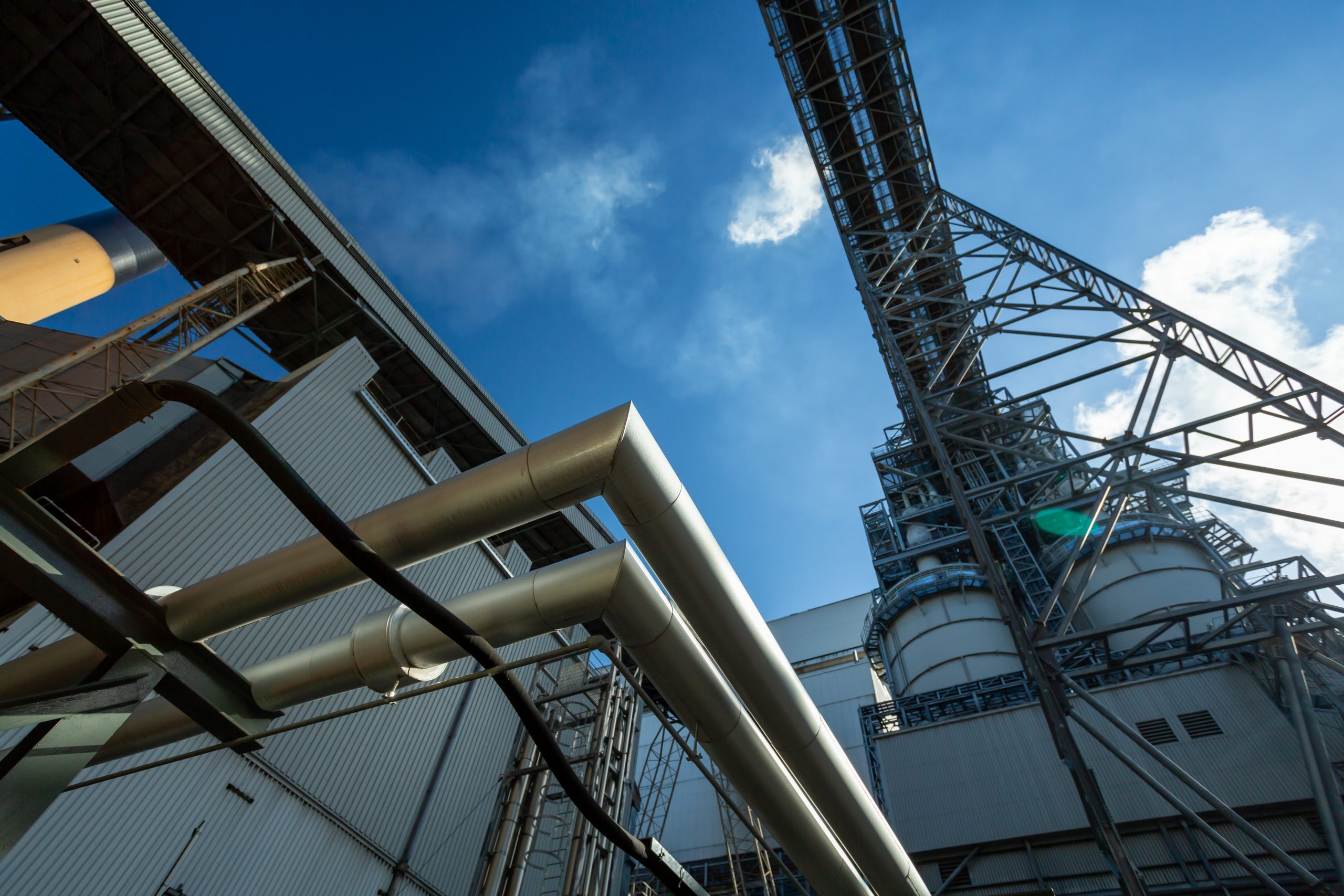

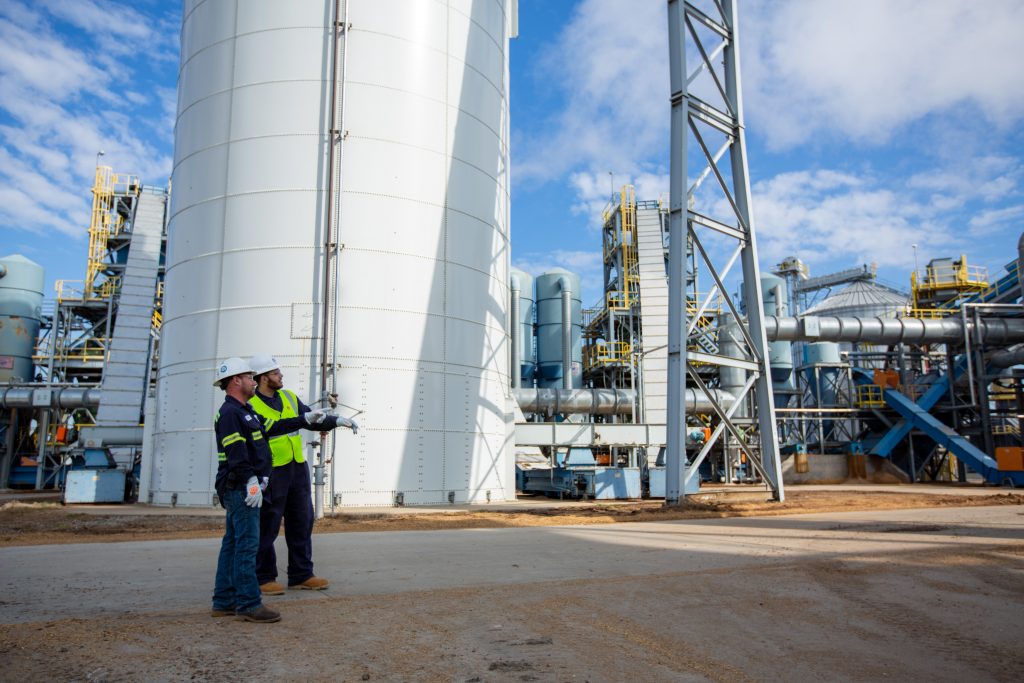


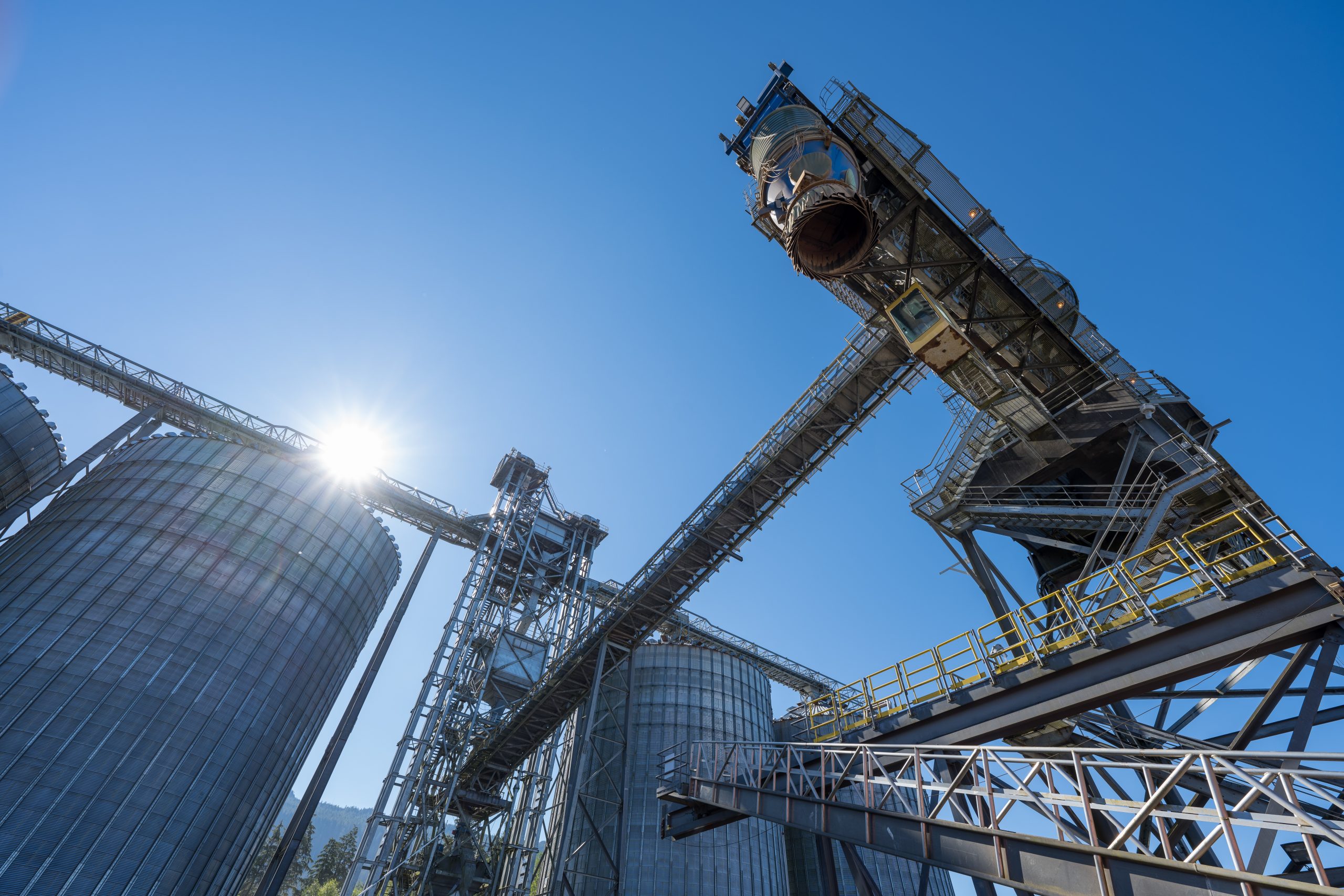
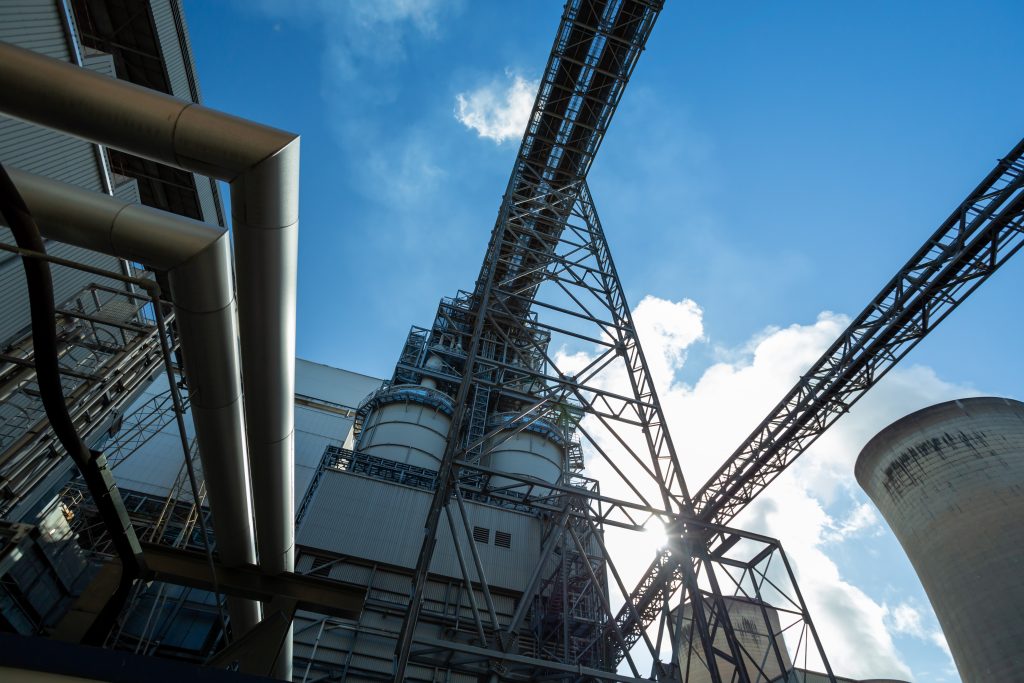
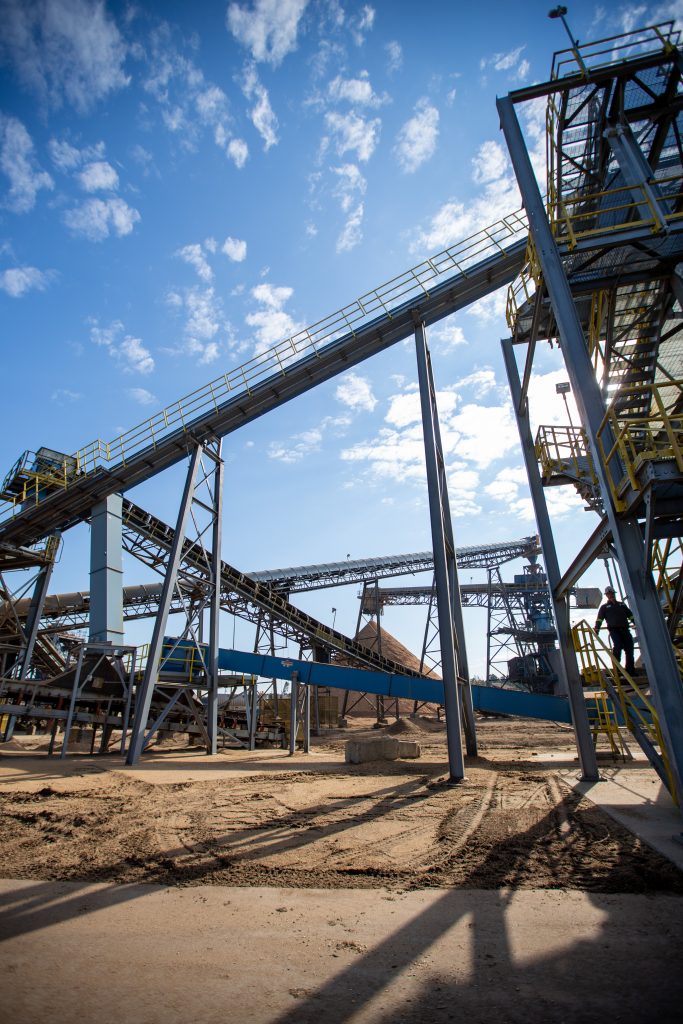 Total investment would be in the region of $2 billion per plant with a target FID in 2026 and commercial operation by 2030. The capital cost reflects the construction of new-build power generation as well as carbon capture and storage (CCS) systems.
Total investment would be in the region of $2 billion per plant with a target FID in 2026 and commercial operation by 2030. The capital cost reflects the construction of new-build power generation as well as carbon capture and storage (CCS) systems.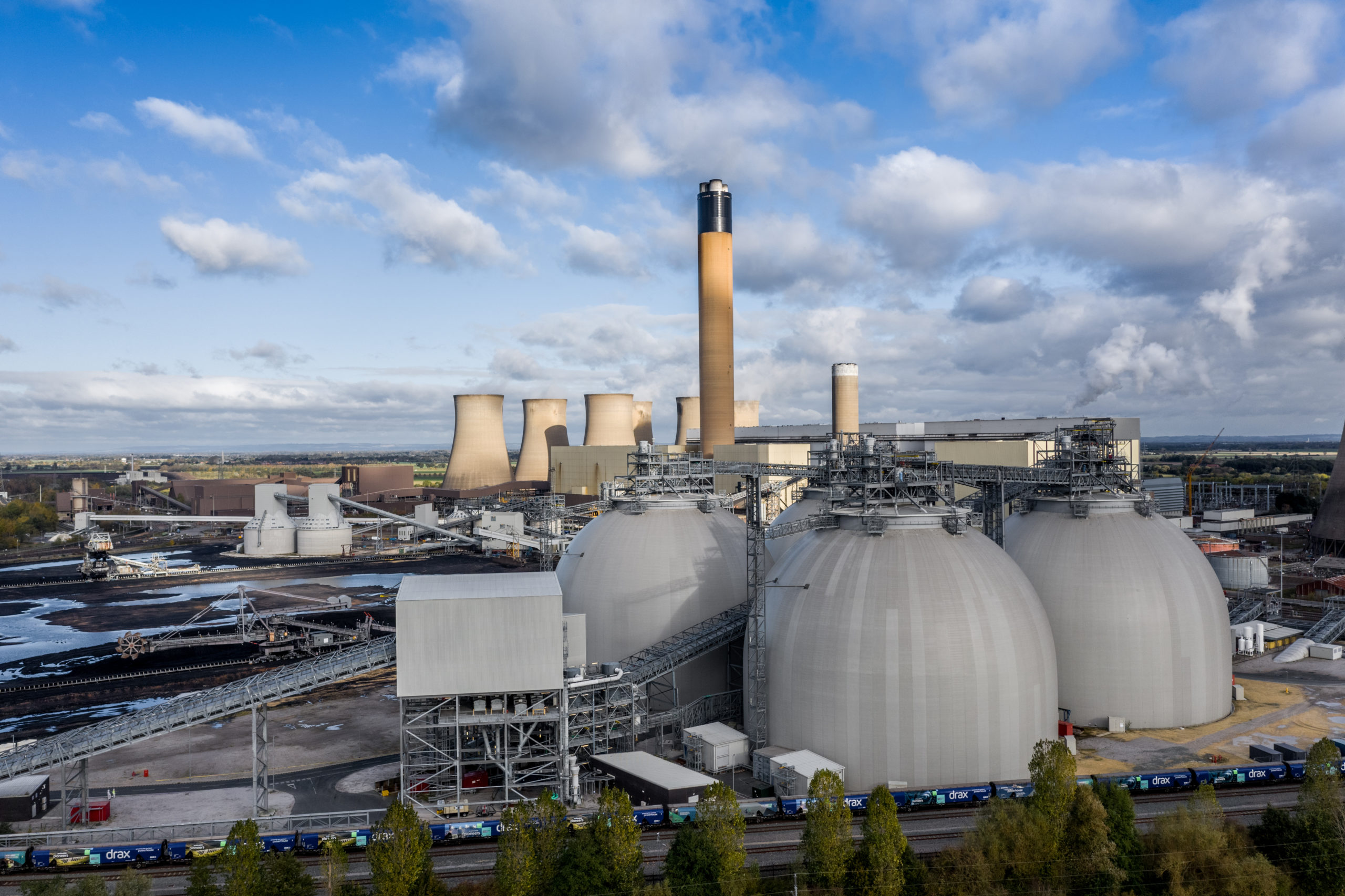

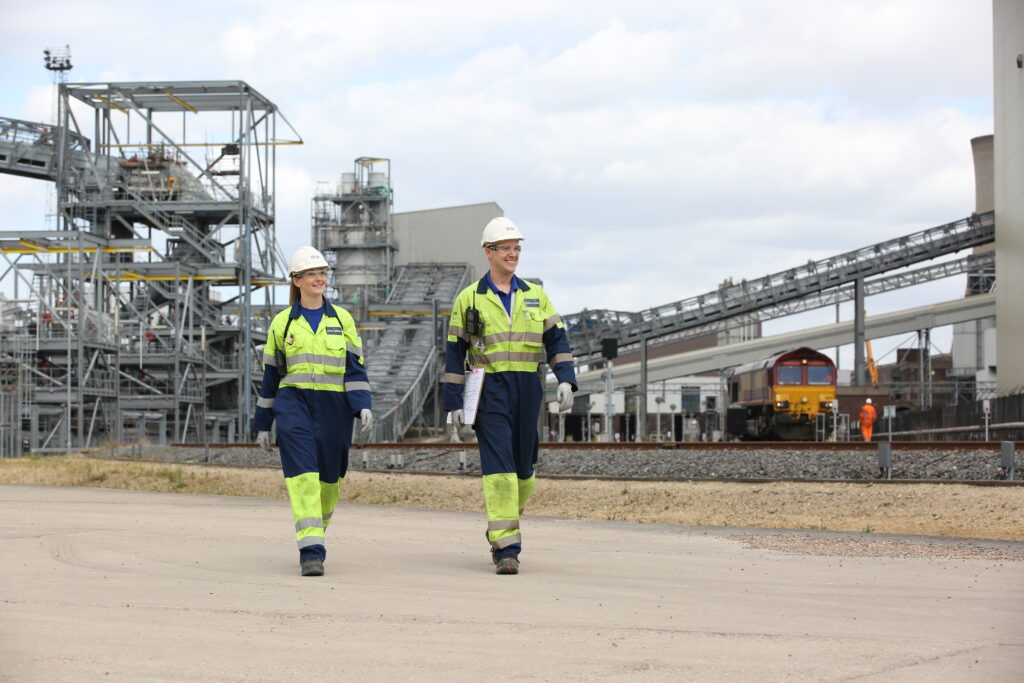
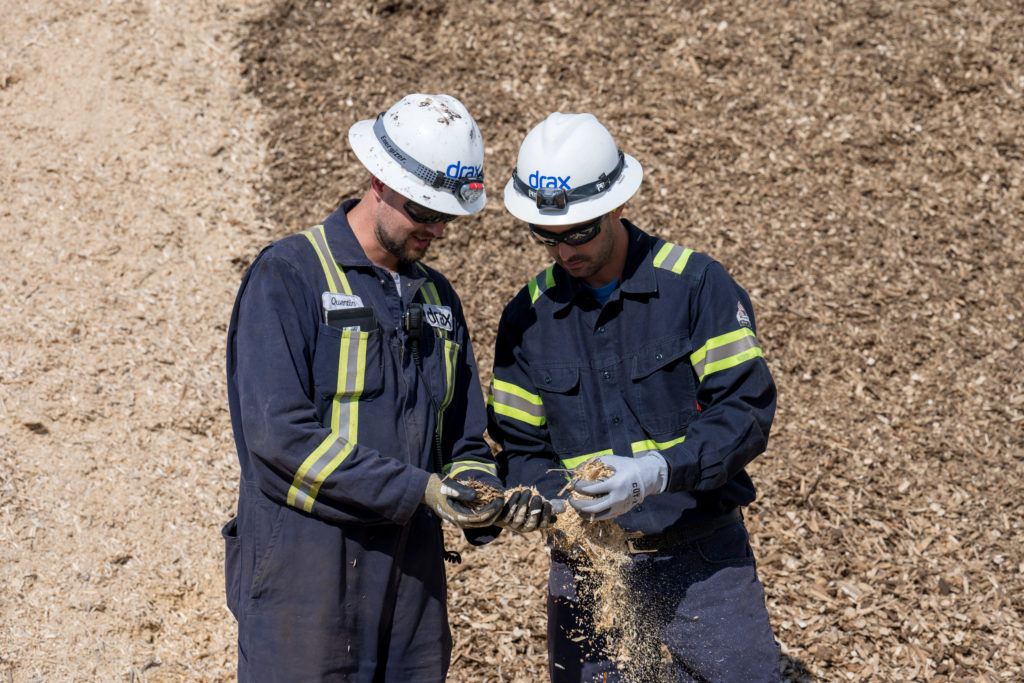
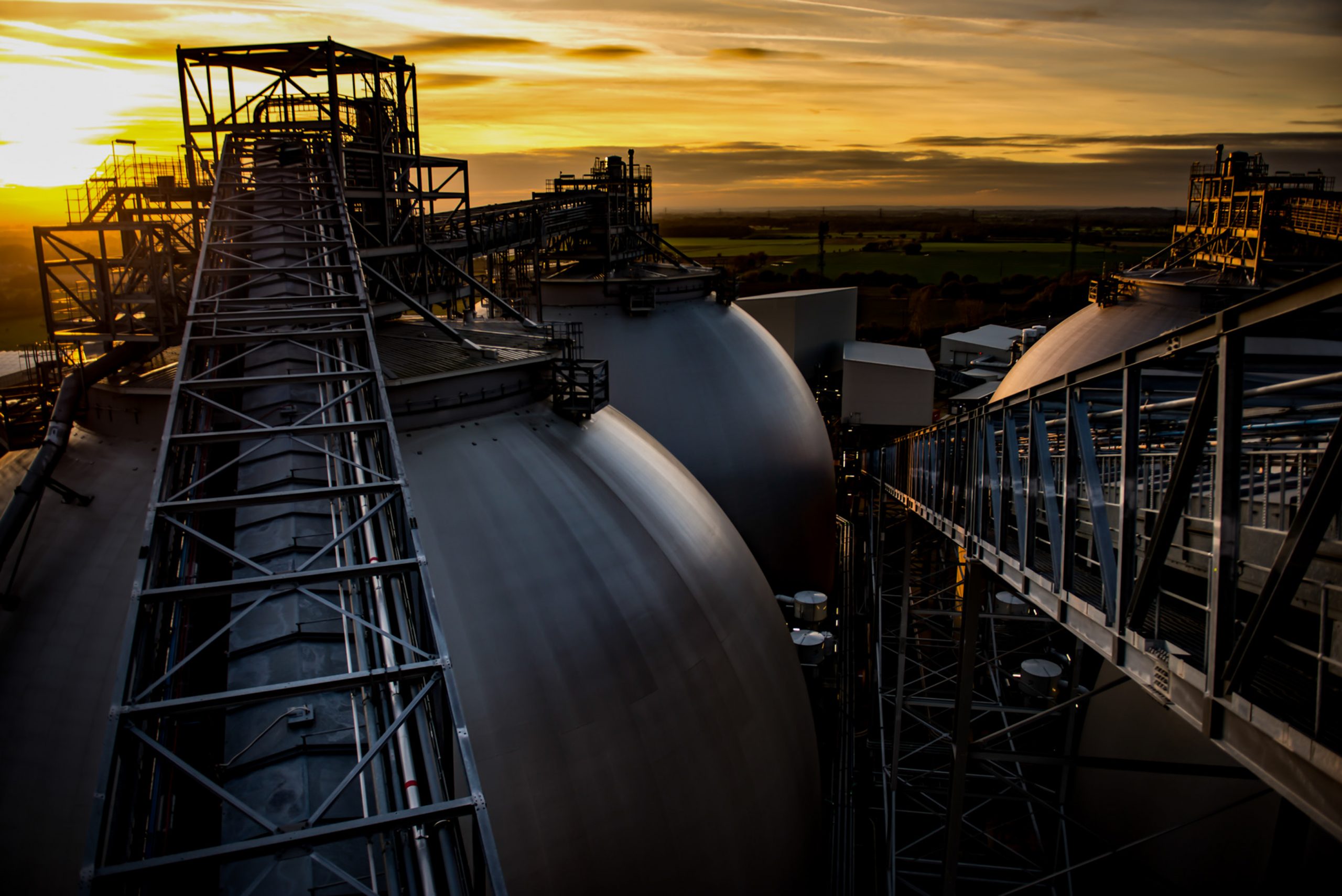
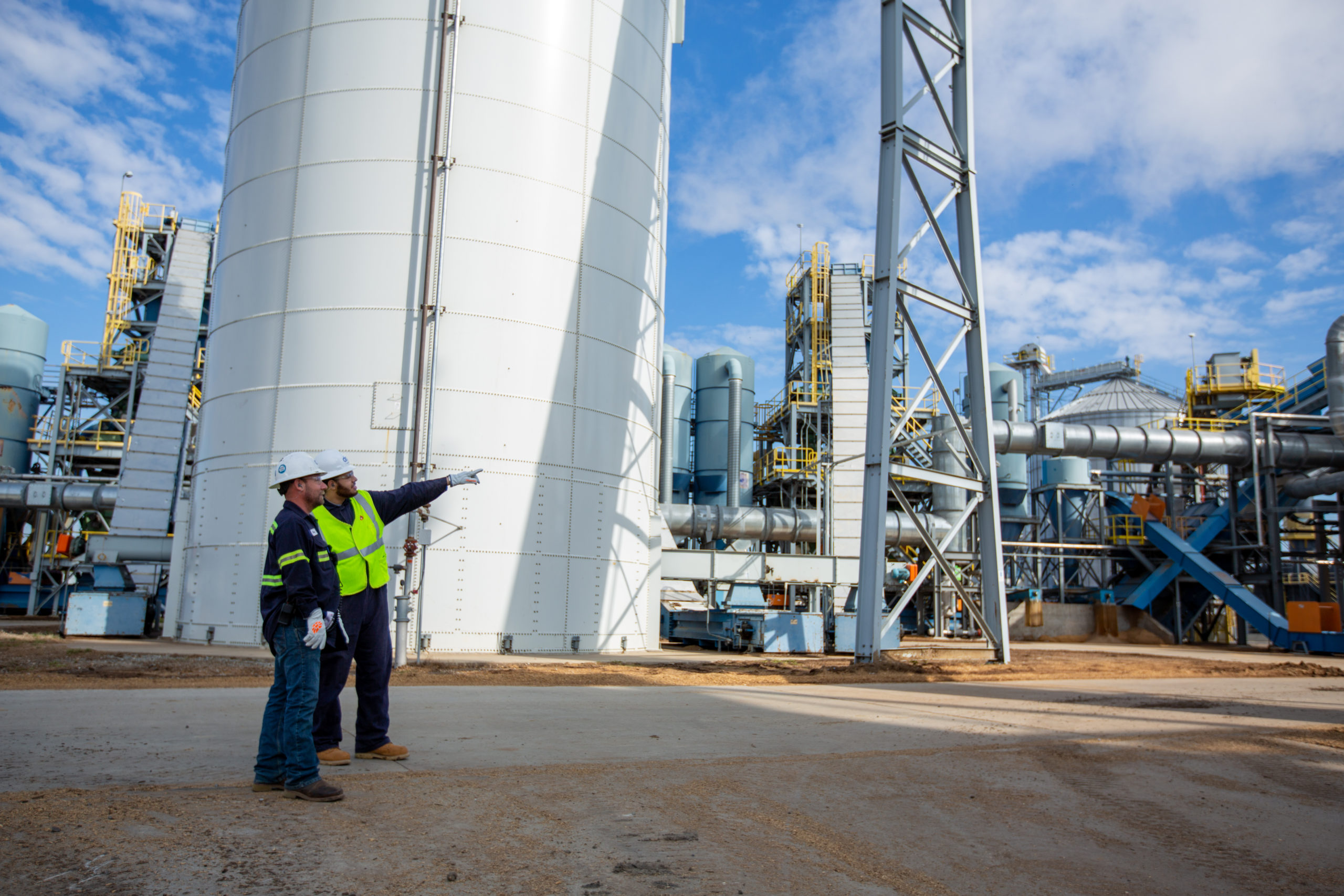
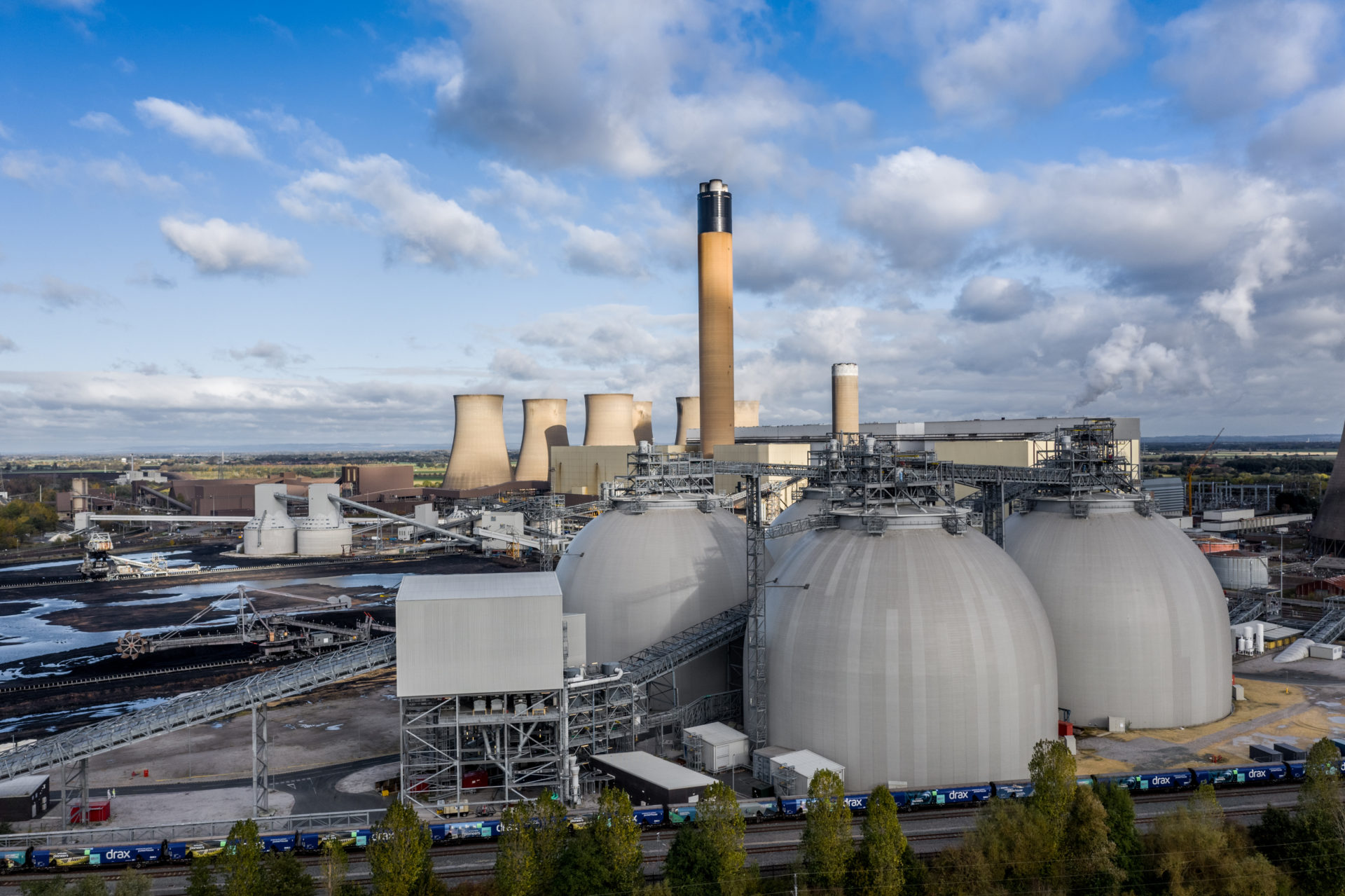
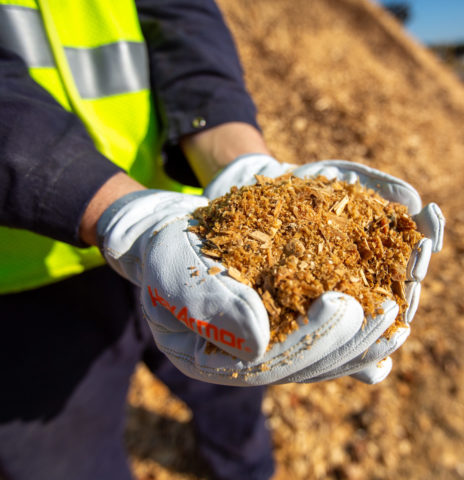 Adjusted EBITDA up 56% to £134 million (2021: £86 million)
Adjusted EBITDA up 56% to £134 million (2021: £86 million)
